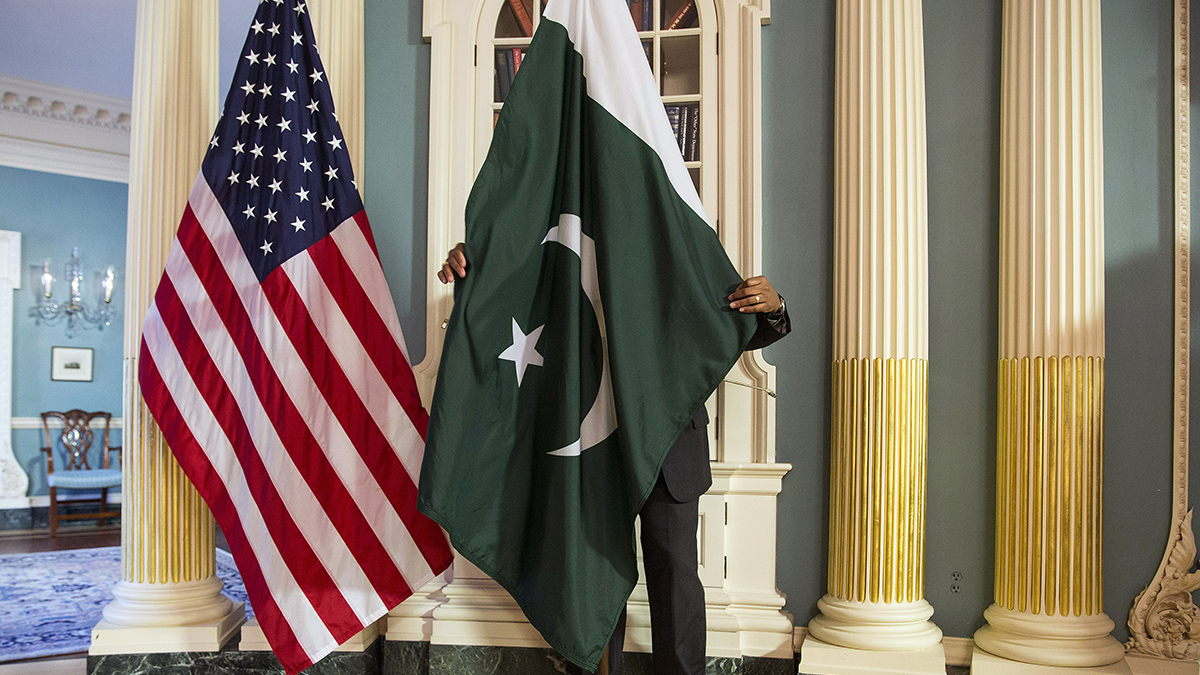The recent naval exercises between the US and Pakistan in the Arabian Sea reflect a renewed commitment to military cooperation, even as Washington remains cautious of Islamabad’s geopolitical manoeuvres. The joint efforts, aimed at enhancing maritime interoperability, shows the complex but enduring relationship between the two nations. Despite historical mistrust, particularly around Pakistan’s ties with terror groups and its relationship with China, these military collaborations perhaps point to a pragmatic approach driven by mutual strategic interests.
Recent naval exercises
In October 2024, the US and Pakistan conducted a significant bilateral naval exercise in the Arabian Sea, involving the USS O’Kane and Pakistan Navy Ship Babur. This exercise, part of a series of collaborations aimed at enhancing maritime security, focused on improving readiness, countering terrorism and ensuring the freedom of navigation in key international waters. According to Pakistan Navy’s media wing, the exercise reflects both nations’ commitment to regional peace and stability. The ongoing partnership, especially in areas like maritime interdiction and mine countermeasures, showcases the critical role the navies play in maintaining order in the region.
These naval drills come at a time when the US is recalibrating its foreign policy in light of rising geopolitical tensions, particularly with China and Russia. Despite these global shifts, Pakistan continues to be seen as a valuable partner, particularly in the US 5th Fleet’s area of operations, which spans the Arabian Gulf, Gulf of Oman, Red Sea and the Indian Ocean.
The broader context
While the naval exercises highlight the current military engagement, they are part of a larger pattern of cooperation between the two nations. Earlier in 2024, both countries participated in Inspired Union 2024, a four-day military exercise in Karachi that focussed on maritime interdiction, explosive ordnance disposal and harbour security. Exercises like this, as well as the Infantry Rifle Company Exchange, which focussed on counterterrorism in urban settings, emphasise the shared security concerns that bind the two nations together.
Impact Shorts
More ShortsThese collaborations reflect a broader military relationship that has weathered significant ups and downs. From Cold War-era alliances aimed at containing Soviet influence to post-9/11 cooperation in the War on Terror, US-Pakistan military ties have been shaped by shifting geopolitical imperatives. Although tensions have arisen, particularly over Pakistan’s alleged support for Taliban factions, military cooperation has remained a cornerstone of the relationship, with both countries recognising the strategic value of working together on security issues.
Suspicion and strategic cooperation
Despite the ongoing military exercises, Washington’s relationship with Islamabad is marked by suspicion and caution. The US has long harboured concerns over Pakistan’s nuclear ambitions and its dual dealings with militant groups like the Taliban, which have strained bilateral trust. The 1985 Pressler Amendment, which curtailed US aid due to Pakistan’s nuclear programme, is a stark example of how strategic concerns can lead to a rift in relations.
However, the need for counterterrorism cooperation, especially following the US withdrawal from Afghanistan in 2021, has kept security ties afloat. Pakistan’s geographic location, with its long border with Afghanistan, makes it a crucial partner in regional stability efforts. The US continues to engage with Pakistan on security issues, providing military aid and conducting joint exercises, even as it keeps a wary eye on Islamabad’s broader geopolitical moves.
China factor
The evolving global power dynamics, particularly the US focus on countering China’s influence, have added a new layer of complexity to US-Pakistan ties. The Biden administration’s National Security Strategy (NSS) emphasises the importance of building alliances in the Indo-Pacific to counter China’s growing clout. Pakistan, with its close relationship with China, has become a key factor in Washington’s regional calculus.
Pakistan’s participation in China’s Belt and Road Initiative and its deepening economic ties with Beijing have raised concerns in Washington. While the US seeks to balance its relationship with Pakistan, it must also navigate the broader geopolitical implications of Pakistan’s growing alignment with China. Nonetheless, the US recognises the importance of maintaining military and security cooperation with Islamabad, particularly in areas like counterterrorism and regional stability.
A pragmatic approach to renewing ties
The recent naval exercises are a reflection of a pragmatic approach from both sides. Despite suspicions, both the US and Pakistan recognise the mutual benefits of military collaboration. For Washington, engaging with Pakistan helps counter terrorism, maintain stability in the volatile South Asian region and safeguard maritime routes critical to global trade. For Islamabad, whether continued US military support bolsters its defence capabilities and provides a counterbalance to its reliance on China is something to watched out for.
The US continues to provide military aid to Pakistan, as demonstrated by the $450 million F-16 sustainment package approved in 2022. Additionally, the renewal of the Communication Interoperability and Security Memorandum of Agreement (CIS-MOA) signals a fresh momentum in defence ties, allowing Pakistan to acquire sophisticated military hardware from the US.
Future of US-Pakistan military relations
The future of US-Pakistan military relations remains uncertain shaped by both longstanding concerns and new geopolitical realities. As the US shifts its focus from counterterrorism to great power competition with China and Russia, Pakistan’s role in this new strategy will be critical. The naval exercises and joint military collaborations demonstrate that despite the challenges both nations see the value in maintaining strong defence ties.
However, much will depend on how both sides manage their broader geopolitical interests. Pakistan’s close relationship with China will continue to be a point of concern for Washington, while Islamabad will seek to balance its ties with both superpowers. In this delicate balancing act, military cooperation remains one of the few areas where the US and Pakistan can continue to find common ground.
)